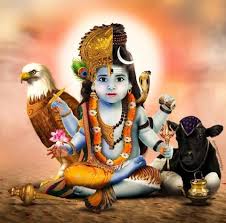Many people often wonder whether Lord Shiva at Kedarnath or Lord Vishnu at Badrinath holds more power. This question arises from a deeper philosophical understanding of the roles these deities play in Hinduism. In essence, creation is attributed to Lord Brahma, protection to Lord Vishnu, and the destruction of desires leading to liberation (Mukthi) to Lord Shiva. However, all these functions are performed by one divine entity.
The Philosophies of Creation, Protection, and Destruction
Brahma: The Creator
Lord Brahma is revered as the creator of the universe. The philosophy of creation signifies the beginning of existence, the birth of life, and the continuous process of renewal.
Vishnu: The Protector
Lord Vishnu is known as the protector or preserver of the universe. His philosophy encompasses sustaining life, maintaining order, and ensuring the balance of cosmic energies.
Shiva: The Destroyer
Lord Shiva represents the force of destruction, not in a negative sense but as a means of removing illusions and desires, leading to spiritual liberation (Mukthi). His role is crucial in the cycle of life and death, allowing for transformation and renewal.
The Unity of the Divine
Despite these distinct roles, it is essential to understand that all these deities are manifestations of one divine entity. This unity of the divine is a fundamental concept in Hindu philosophy. It signifies that all gods, regardless of their functions, are aspects of the same supreme power.
Personal Preference and Spiritual Paths
Choosing Your Deity
People often develop a personal preference for a particular deity based on their inclinations and spiritual needs. Some may strongly connect with Lord Vishnu, others with Lord Shiva, Lord Murugan, or other gods. This preference guides individuals on their spiritual journey, providing comfort and direction.
The Importance of a Chosen Path
Following the deity or guru that resonates with you is crucial for spiritual progress. When you walk an unfamiliar path, you may face discomfort and confusion. Therefore, it is recommended to choose the god or guru who aligns with your inner calling, facilitating a smoother and more fulfilling journey towards your spiritual destination.
Conclusion: The Oneness of All Gods
Ultimately, it is important to recognize that all gods are one. The divine is singular, and everything is an expression of this divine essence. By understanding and embracing this unity, you can navigate your spiritual path with clarity and devotion, knowing that every step brings you closer to the ultimate truth.
In conclusion, whether you revere Lord Shiva at Kedarnath or Lord Vishnu at Badrinath, you are worshipping different aspects of the same divine entity. Follow the path that speaks to your heart, and you will find your way to spiritual enlightenment and liberation.

